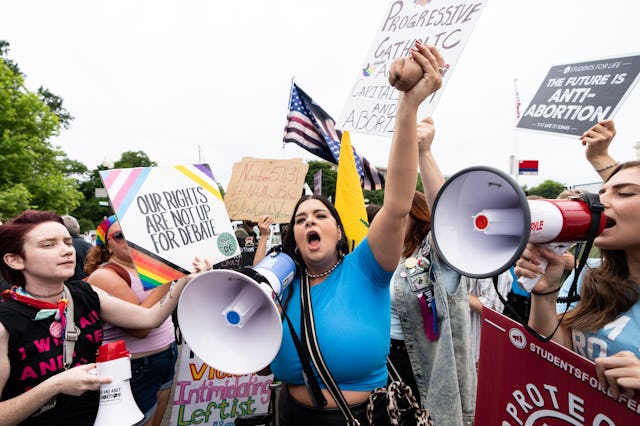Roe v. Wade Overturned
The United States Supreme Court has ruled that its citizens do not have a constitutional right to abortion.

For the first time since 1973, the citizens of the United States do not have the federal, constitutional right to abortion.
After nearly 50 years of conservatives fighting to strip women of their reproductive rights, a right-leaning Supreme Court has ruled to overturn the historic Roe v. Wade decision, which has allowed people across the country to access safe and legal abortions.
Friday’s decision, Dobbs v. Jackson Women's Health Organization, concerns a Mississippi law that bans all abortion past 15 weeks, except in extremely limited medical cases, such as if the life of the mother is endangered or in the case of “severe fetal abnormality” (rape and incest are notably not exceptions).
In May, a draft opinion of this decision was leaked to the public by an unnamed source, causing an uproar across the nation. Today’s decision is very similar to the draft seen last month. Shortly after the leak, the government erected an 8-foot wall around the Supreme Court, in anticipation of pro-choice protests. Individual states are also bracing for national protests against the archaic, misogynistic ruling.
“Roe was egregiously wrong from the start,” Justice Samuel Alito wrote in the majority draft opinion document. “We hold that Roe and Casey must be overruled. It is time to heed the Constitution and return the issue of abortion to the people’s elected representatives.”
Over the course of their lifetime, about one in four women have an abortion. One in six of those people are already parents. All of those people are making a private and personal medical choice with her healthcare provider.
The Turnaway study shows that women who are denied a safe and legal abortion are more likely to live in poverty, are more likely to become single moms, and are more likely to suffer from poor mental and physical health. In addition, their children are also more likely to live below the poverty line.
Roe v. Wade is supported by the majority of Americans — 60% of Americans support maintaining Roe v. Wade, while only 27% want to see it overturned. Yet 26 states currently have laws on the books that will greatly restrict or completely ban abortion in the wake of this federal decision.
At the same time, American confidence in the Supreme Court has plummeted. According to a Gallup poll, only 25% of Americans have “a great deal” of confidence in the ruling body. Another 43% of respondents said they had “some” confidence, while 31% said they had “very little” or “none.”
It’s easy to see why. This is far from the only starkly conservative decision made during the current Supreme Court session, which is wrapping up by the end of the month. This week, they also made a decision that will make it more difficult for states to pass gun safety laws. They also ruled that states cannot exclude religious schools from tuition assistance programs that allows parents to use vouchers to send their kids to public or private schools — a decision that blurs the lines between the separation of church and state.
While some women will be able to afford to travel to abortion safe haven states, this ruling will overwhelmingly affect poor families and individuals who cannot travel or take time off work to access legal health care.